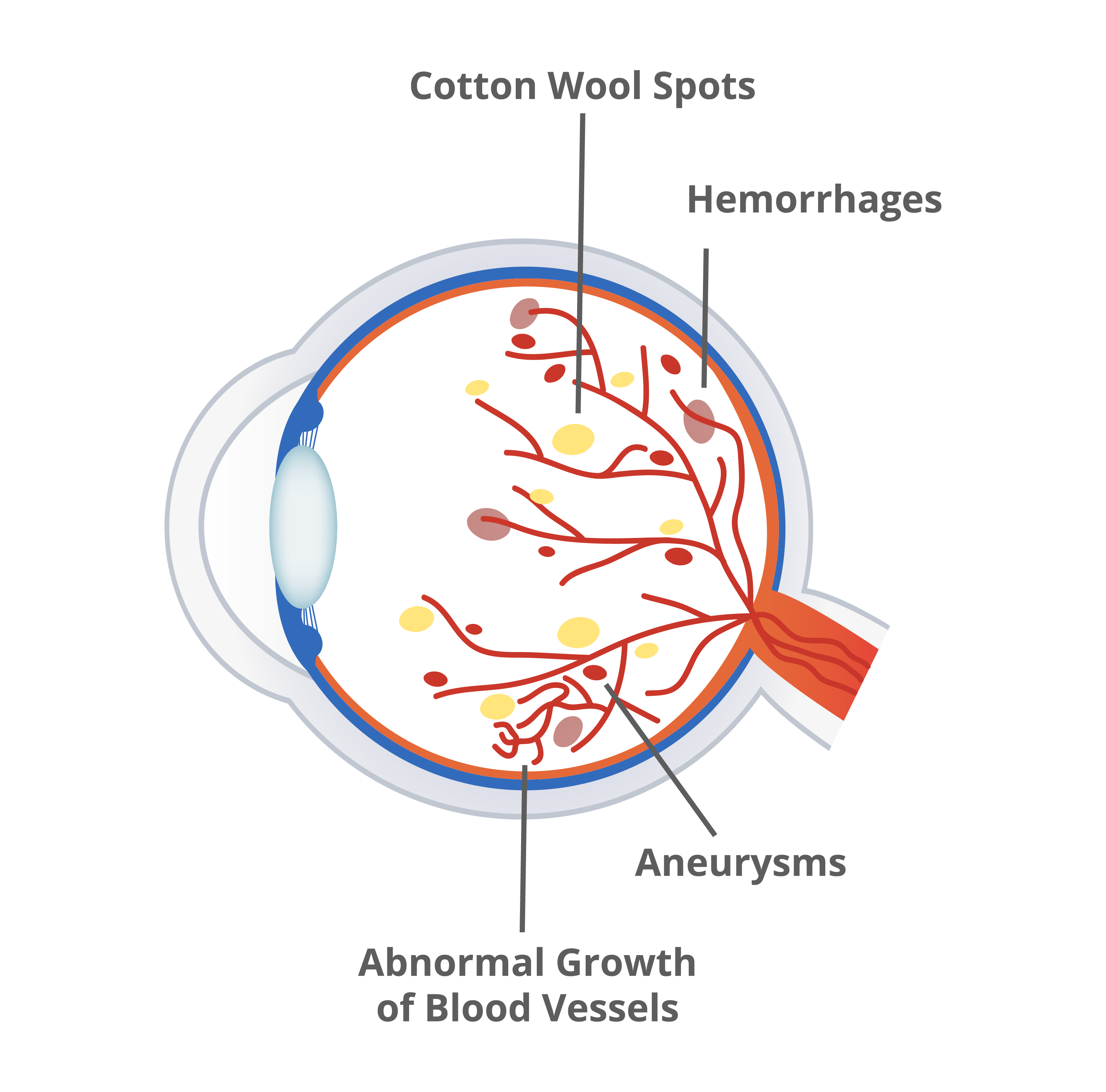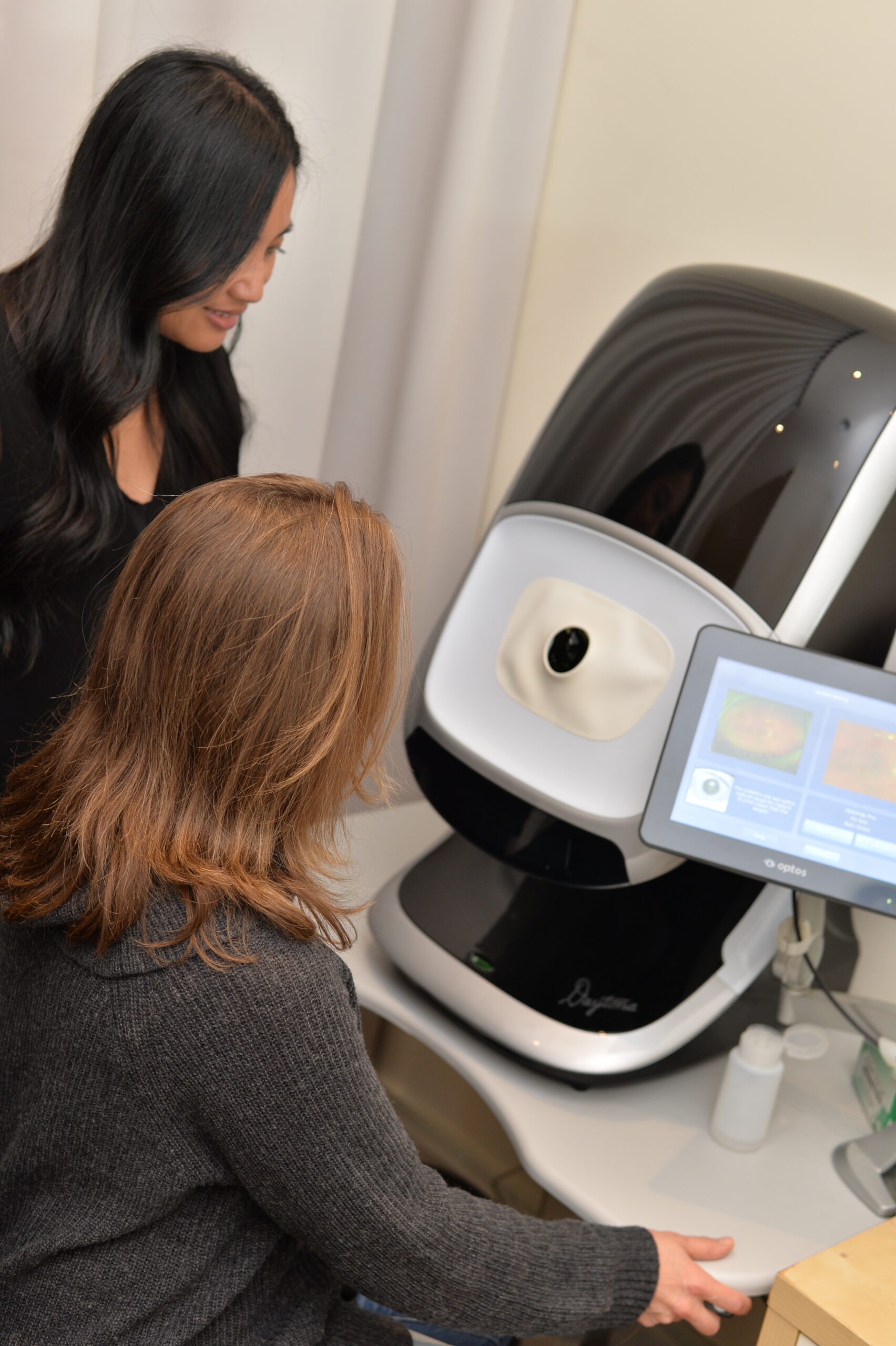Patient Resources
How Diabetes Affects Your Eyes
Your Journey to a Fulfilling Life
Patient Resources
Latest Insights
How Diabetes Affects Your Eyes
What You Need to Know
Living with diabetes comes with its challenges, and protecting your vision should be a top priority. Diabetes can have a significant impact on your eyes, potentially leading to conditions like diabetic retinopathy, which is one of the leading causes of vision loss worldwide. Here’s what you need to know to keep your eyes healthy and your vision clear.
Diabetes can damage the blood vessels in your retina, the light-sensitive tissue at the back of your eye. Over time, high blood sugar levels can cause these vessels to leak fluid, swell, or even close off entirely. If left untreated, these changes can lead to irreversible vision loss.
Some common eye-related complications from diabetes include:
- Diabetic Retinopathy: A condition where damaged blood vessels affect the retina. Bleeding or fluid build-up in the eye are the most common signs we look for. These are signs that your retina is not receiving proper blood flow. If left untreated, it can result in irreversible vision loss
- Glaucoma: Diabetes is one of the largest risk factors for glaucoma. Often in these cases, eye pressure is normal. Rather, the optic nerve becomes damaged due to lack of proper blood flow in diabetes.
- Cataracts: High and fluctuating blood sugars can cause clouding of the eye’s natural lens, requiring cataract surgery to fix the blurred vision. Diabetics tend to develop cataracts at a younger age.
- Dry Eye and Fluctuating Vision: Diabetes can also affect the quality of your tear film and cause changes in vision due to unstable blood sugar levels.


Did you know?
- 1 in 3 diabetics worldwide has diabetic retinopathy.
- Early detection is critical to preserving your vision and preventing long-term damage.
- Advanced imaging technology, like optical coherence tomography (OCT), can detect fluid and swelling in the retina caused by diabetes.
- If there is fluid and swelling in the retina, your optometrist will refer you to an ophthalmologist for further treatment.
- If diabetic retinopathy is present, your family doctor or endocrinologist may modify your medications.
Keep Your Health on TRACK
See your family physician. Get a dilated eye exam annually.
Our advanced digital scan can help detect early signs of high blood pressure in the eye.
![AdobeStock_582517187 [Converted]_vv](https://onevisionoptometry.com/wp-content/uploads/2024/11/AdobeStock_582517187-Converted_vv.png)
Take your medications
![AdobeStock_582517187 [Converted]_vv copy](https://onevisionoptometry.com/wp-content/uploads/2024/11/AdobeStock_582517187-Converted_vv-copy.png)
Reach & maintain a healthy weight
![AdobeStock_582517187 [Converted]_vv copy 3](https://onevisionoptometry.com/wp-content/uploads/2024/11/AdobeStock_582517187-Converted_vv-copy-3.png)
Add physical activity to your daily routine
![AdobeStock_582517187 [Converted]_vv copy 2](https://onevisionoptometry.com/wp-content/uploads/2024/11/AdobeStock_582517187-Converted_vv-copy-2.png)
Control your sugar, salt, & cholesterol intake
![AdobeStock_582517187 [Converted]_vv copy 4](https://onevisionoptometry.com/wp-content/uploads/2024/11/AdobeStock_582517187-Converted_vv-copy-4.png)
